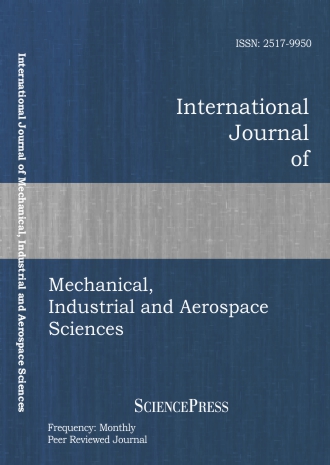
Scholarly
Volume:7, Issue: 9, 2013 Page No: 1803 - 1805
International Journal of Mechanical, Industrial and Aerospace Sciences
ISSN: 2517-9950
Performance Investigation of Solid-Rocket Motor with Nozzle Throat Erosion
In order to determine the performance and key design parameters of rocket, the erosion of nozzle throat during solid rocket motor burning have to be calculated. This study aims to predict the nozzle throat erosion in solid rocket motors according to the thrust profile of motor in operating conditions and develop a model for optimum performance of rocket. We investigate the throat radius change in the static test programs. The standard method and thrust coefficient are used for adjusting into the ideal performance for conical nozzles. Pressure and thrust data acquired from the tests are analyzed to determine the instantaneous nozzle throat diameter variation throughout the test duration. The result shows good agreement of calculated correlation comparing with measured erosion rate data showing agreement within 1.6 mm/s. Nozzle thrust coefficient loss is found approximately 24% form nozzle throat erosion during burning.